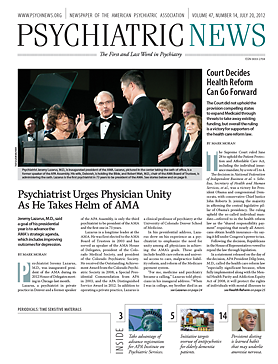Programs for the treatment of adolescents with substance use disorders (SUDs) have traditionally provided fixed amounts or durations of intervention and evaluated their effects several months after treatment completion. This approach fails to address patients’ heterogeneity, substance abuse severity, and poor response to treatment (Waldron & Turner, 2008).
In addition, little attention has been devoted to the continuity of care necessary to respond to the growing consensus that because SUD is a chronic disorder with a relapsing-remitting course, it is necessary to link and engage patients with aftercare or continued-care programs and services. Often, there is no coordinated effort to provide a system of continuing care, which leaves patients vulnerable to frequent relapse, and there is a substantial variability within and between programs in terms of success in achieving goals for continued care. A growing view of addiction treatment is that it is a process that requires a continuum of care including management and monitoring similar to methods used in chronic-disease management. The vast majority of research on continued care has been conducted with adults. However, results of the few studies on youth receiving continued care have shown efficacy in reducing and postponing relapse.
It is important to understand that alcohol and substance use increases in youth until they reach their early 20s, at which time young adults manifest moderation or cessation of use. The trajectory of increased substance use, therefore, compromises the likelihood of favorable response to treatment and increases the odds for relapse during the posttreatment phase. Furthermore, in contrast to adults, a considerable proportion of youth in treatment may be better considered “continuing users” who are not sufficiently motivated to abstain during and following the treatment phase.
One of the crucial goals of aftercare should be to prepare patients to cope effectively with situations in which they are at high risk for relapse. Individualized relapse-prevention programs might be helpful in facilitating maintenance of abstinence or initiating abstinence for those who failed to achieve it during treatment.
Many communities lack aftercare services for adolescents with SUDs. Even if referrals are being made, many adolescents do not link to, or only participate minimally in, aftercare interventions.
Godley et al. (2007) posited that because several episodes of treatment and therefore several potential reentries are the rule rather than the exception for youth with SUD, a noncompleter status does not necessarily indicate that the adolescent may fail to benefit from continuing care.
Adaptive treatment research for adult substance abusers has been developing during the last decade to address the heterogeneity in both clinical severity and treatment response. This has been a promising performance-based procedure in which individuals who respond poorly to an initial level of evidence-based efficacious treatment are then provided a different or more enhanced version of the same treatment (McKay, 2009). The definitions of nonresponse or poor response and the timing of change are pivotal decision rules in an adaptive treatment protocol, which includes an intervention options algorithm. A review of studies yielded significant results in which adaptive procedures led to either better substance use outcomes or produced algorithms that specified which patients would benefit most from which continuation treatments (McKay, 2009). These results are highly encouraging with regard to the potential acceptability and effectiveness of adaptive interventions for SUD.
In accordance with the stepped-care approach, patients are started at the lowest appropriate level of care and then “stepped up” to more intensive treatment if warranted by poor initial response. This approach may be more palatable to patients since it places a lower burden on them at the beginning of treatment. It may also increase cost-effectiveness and cost-benefit. Adaptive or stepped-care treatment algorithms have been developed and evaluated for a number of disorders, including depression and anxiety in adults. The Texas Children’s Medication Algorithm Project was developed by Hughes et al. (2007). The field of adolescent SUD treatment has not yet generated an empirically supported set of tailoring variables and decision rules.
However, help is coming. Several studies on adaptive treatment for youth with SUD are under way. It is hoped that these studies will specify the interventions that are most likely to be effective in the face of initial nonresponse.

Yifrah Kaminer, M.D., is a professor of psychiatry and pediatrics at the University of Connecticut Health Center. He is also the coeditor of Clinical Manual of Adolescent Substance Abuse Treatment from American Psychiatric Publishing. APA members can purchase the book at a discount at www.appi.org/SearchCenter/Pages/SearchDetail.aspx?ItemId=62381. 
